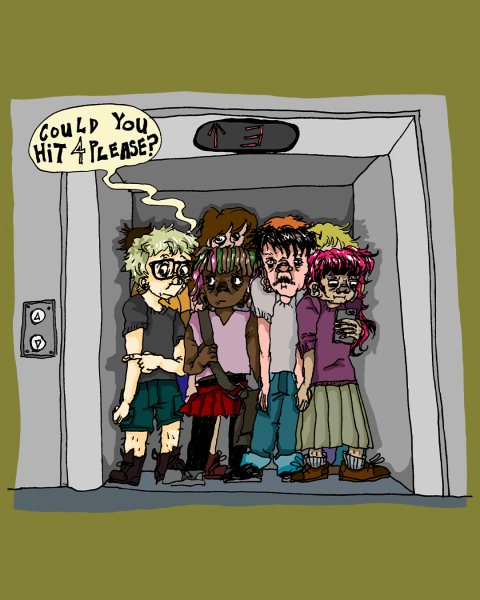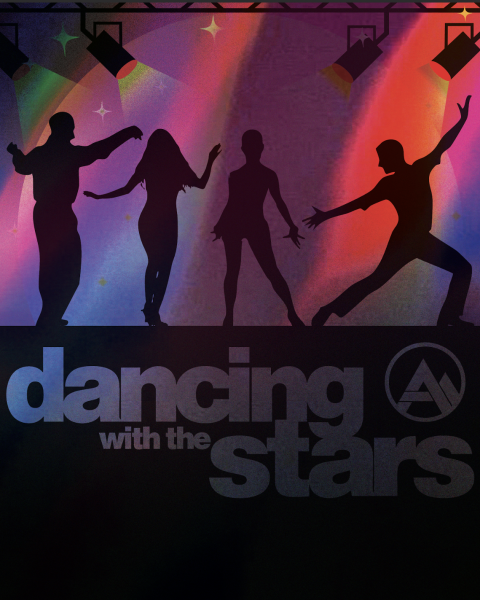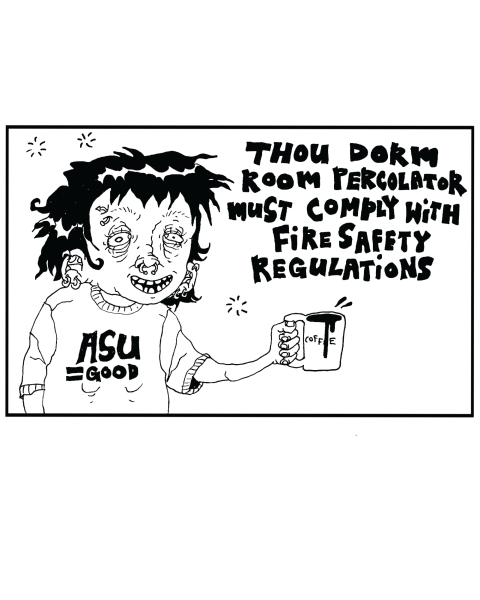Letter to the Editor: Statement from Dr. Leonardo Flores – message to the Appalachian Community
February 24, 2020
February 24, 2020
Dear Appalachian State University community,
I am writing to address a regrettable incident that has profoundly affected our department and its students.
On February 15, 2020, The Appalachian published Mr. Jay Edwards’ Letter to the Editor recounting an incident in Dr. Kristina Groover’s African American Literature class when she read a passage by African American abolitionist Frederick Douglass that included the N-word. A prior lesson had included the same epithet. Before the class in question, Dr. Groover and Mr. Edwards had discussed the matter; however, it seems that there was a misunderstanding in this exchange about how classes in the future would be conducted.
We discussed this incident in our department meeting last Friday, and genuinely regret Mr. Edwards’ pain and that of any other student resulting from this or any other content in our courses. We are also concerned by how this situation has affected Dr. Groover, because she is a respected colleague with a passion for African American literature and a history of activism for social and racial justice. We recognize that neither our academic privilege nor our past actions make us impervious to the serious, painful, and complex history surrounding racist language.
Determining the best approach to teaching volatile and painful texts is a discussion we need to continue within our department, across our campus, and on college and university campuses across the country. We never want to cause any student pain, but we also never want to gloss over or try to hide the racist history of this country, and that history’s racist language. Teachers and professors nationwide struggle with resolving this dilemma, both honoring that pain and teaching the history, and the answers to the dilemma are still evolving. As a department, we want to be part of healing those wounds, and finding answers.
Diversity and inclusion are fundamental to our work. In 2017, with significant leadership of Dr. Groover, our department wrote our Diversity Statement, which speaks to our commitment to inclusive excellence. I encourage the Appalachian community to read the full text on our department homepage (https://english.appstate.edu/
- As educators, we affirm that language and texts, films and stories help us to understand the experiences of others whose lives are different from ours. […] In line with our departmental goals, we disavow all racism, xenophobia, homophobia, sexism, Islamophobia, anti-Semitism, classism, ableism, and hate speech or actions that attempt to silence, threaten, and degrade others.
We commit to addressing this at a department level by having frank conversations about this topic with each other, students, other faculty, and staff. Going forward, we will reach out to members of our campus whose work focuses on inclusion and diversity and invite scholars who have published on this topic to help us become even more effective teachers and community members.
As we work through the aftermath of the situation between Dr. Groover and Mr. Edwards, I commit to help lead discussions in my department that explore how we can honor the integrity of academic freedom and the well-being of our students in the classroom.
Our department will have more to say about this as this work continues. I ask for patience so we can have the conversations necessary to address this situation as best we can. And while we’re doing so, I ask us to be generous as a community in the ways we interpret people’s motivations and actions, so we can continue to work in good faith toward a positive resolution.
Respectfully,
Leonardo Flores
Chair
Department of English













Tj Smith • Jun 4, 2020 at 11:03 am
I do not know what I am talking about. I Act like I can spell and have meaningful ideas, but it isn’t true. I can’t even make since of what I wrote above. Some people need to stay out of stuff like this, including me.
Amanda Hall • Mar 5, 2020 at 2:34 pm
When looking at literature of a historical document, and when reading it aloud to a class it should not be altered just for sensitivity. In a literature class literature should be presented in its entirety. Even if a word is offensive it is the professors job to present the literature and facilitate discussion. She did not say the n-word during discussion, only when reading from the text. Editing text due offensive content is ineffectual, and works as a type of historical censorship. It strips texts of their impact. Jay Edwards is not an English major, and would likely not understand the significance of keeping texts in their intended form. He is a political-science major. The n-word can easily be avoided in a polisci class, but NOT in an African American literature class. Edwards took personal offense to a non-offensive act. I’ve been in Dr. Groover’s class before. She does not skirt around hard topics, and I’ve felt isolated because of that; however, I also came away with a better understanding of the material. Being uncomfortable is not an attack or an act of violence.
Fresh Alumni • Mar 2, 2020 at 1:27 pm
Content Warning – Racism, Verbal Violence.
Written quotes included and marked with # signs.
Links included in numbered list at end of comment. (0)
————————————————————————————
Let’s start by saying that the faculty of Appalachian State’s English-department for African American studies (1) does not seem to have a single Black professor, as Bruce Dick, Carl Eby, and Kristina Groover are all non-black, and Grace McEntee has no images hosted by App.
Let’s start by admitting that Black students on Appalachian’s campus are no strangers to overt displays of racism and judgement, from chalking of vitriolic hate-speech (2); the hanging of a white nationalist flag on our campus (3); to the willingness of the Appalachian itself to run side-by-side articles of this issue (4) with comments allowed on its website such as –
#”[Jay Edwards] needs to take a gap year and grow up. This isn’t kindergarten. Don’t take an African American Literature class if you don’t want to hear what the African American authors had to say/write. And seriously, if (Jay Edwards) really thinks that a black professor can teach material that can’t be taught by a white professor cannot, he doesn’t belong on campus. If he really thinks that context doesn’t matter, he is too simplistic to handle college level material…. (Jay Edwards) can come back when he grows up and wants to learn from college-level material and can handle debates without trying to burn the house down. What a joke.” – TJ Smith.
Let’s not forget a key part of the original article posted to the Appalachian here (5), written by Jay Edwards:
#”Not only did she unapologetically say this hateful and disparaging word, but she encouraged her white students to say it as well. She invited her overwhelmingly white class, at this predominantly white institution, to say a word that every person in that classroom, including her, knew was not acceptable for a white person to say.”
For Jay Edwards, avoiding a CLASSROOM full of White folks saying the N-Word is not about skirting education, it’s about his safety, a feature of “diversity and inclusion” that Appalachian State Administrators seem to forget time and time again. In his original article, Jay Edwards wrote that this event was violent to him (5):
#”This not only was an extremely racist act of aggression, but I thoroughly consider this an act of violence. Violence, not in the physical sense, but in the way that negatively affects my mental health and my educational experience.”
And yet, the public gas-lighting of Jay Edward’s emotional experiences as infantile and anti-educational continue to use the Appalachian website’s public comment feature to facilitate disparaging rhetoric as “free-speech” and worth including in the investigative process.
—————————————————————————————————————————————————————-
This situation stands in stark contrast to another administrative decision that occurred 8 years ago, where a tenured Professor of Sociology at Appalachian State, Jammie Price was placed on leave after she used an educational, sexually explicit documentary, “The Price of Pleasure” (6) in class. The article notes that Jammie Price obtained the documentary from BELK LIBRARY.
The article continues to read:
#[According to a letter Ms. Price received last month from Anthony Gene Carey, vice provost for faculty affairs, Ms. Price failed to warn students that the material may be “objectionable or upsetting,” and at least three students complained to administrators that the content was “really inappropriate,” Mr. Carey wrote.]
Of EXTREME importance to note is that Anthoney Gene Carey (7) who used to serve as VICE-PROVOST of Appalachian until a vote of no confidence (8) by the ASU faculty removed him is also a member of ASU’s faculty who claims his area of expertise in “African American and Africana Studies, United States History”.
Note the language of “at least 3 students” used by Mr. Carey, and how this was enough to make a decision stern enough to keep Jammie Price without pay. I would not believe that the same ASU students, such as TJ Smith, would make the same argument about the “infantile concerns” of students who complained to Mr. Carey over this documentary.
I ask readers of this article and its prior to consider the implications of Administrative behavior both now, and in the past. I also ask readers of this article who may be White to have conversations with their peers about the role of race in their own education.
~ Live fast, die young, bad girls do it well.
Resources –
1: https://english.appstate.edu/faculty-staff/field
2: https://www.freshu.io/mia-renee-cole/appalachian-state-students-of-color-target-of-harassment-after-chalkings
3: https://www.wataugademocrat.com/news/white-supremacist-banner-briefly-displayed-on-campus/article_044fddaf-cf43-52cf-9bff-195128126e7b.html
4: https://theappalachianonline.com/english-department-responds-to-use-of-n-word-in-class/
5: https://theappalachianonline.com/letter-to-the-editor-3/
6: https://www.chronicle.com/article/Tenured-Professor-Is-Placed-on/131607
7: https://history.appstate.edu/faculty-staff/anthony-carey
8:https://www.wataugademocrat.com/news/update-vote-on-provost-divides-asu-faculty/article_4d7558a1-db9f-535e-8554-3fda5eda3234.html
Fizer • Mar 2, 2020 at 1:24 pm
Dan Follet: You act as if all black and brown people agree on these issues. This is too simplistic. Therefore, if someone does not agree with you they are not necessarily racist. They could be perfectly capable of seeing why the student did not like hearing the N word read aloud but nevertheless disagree with the student or with you on what the remedy should be. Some black and brown people have criticized the strategies you are currently supporting- shall we listen to them also? How about these scholars?
Theatlantic.com/ideas/archive/2019/08/whites-refer-to-the-n-word/596872/
And
https://www.thecollegefix.com/black-law-scholar-explains-how-critical-race-theory-is-a-dangerous-and-destructive-ideology/
Dan Follett • Mar 1, 2020 at 4:26 pm
This is an insane response to a more than valid concern. Not only are you completely negating the student’s reaction, but you are contradicting yourselves when you say that your department disavows hate speech and then actively condoning it in the classroom. I have been in classes where white English teachers refrained from using the N-word, and as a student of color, I was grateful I didn’t have to hear that come out of their mouth. This student deserves better, and so do all of these future English teachers in this African American Lit class. Please please please listen to black and brown students when they express issues instead of making them out to feel like they’re just angry n*ggers and continuing to support racists! Just listen to minorities when they say how you can treat them better! If you were truly an activist, you would already know this.
TJ Smith • Feb 29, 2020 at 1:05 pm
The student needs to take a gap year and grow up. This isn’t kindergarten. Don’t take an African American Literature class if you don’t want to hear what the African American authors had to say/write. And seriously, if he really thinks that a black professor can teach material that can’t be taught by a white professor cannot, he doesn’t belong on campus. If he really thinks that context doesn’t matter (though he relies exclusively on context in his argument), he is too simplistic to handle college level material. And if he thinks it’s ok to engage in a dishonest twitter bullying campaign to ‘bring down’ a professor that is well-respected and champion on inclusiveness, he doesn’t belong on campus. He’s the one that lacks integrity, not inclusive and is flat out mean. He can come back when he grows up and wants to learn from college-level material and can handle debates without trying to burn the house down. What a joke.
F.L. Wilson • Feb 28, 2020 at 3:56 pm
That template is simplistic and lacks any serious intellectual merit, and as such cannot address the complexities of such issues. It fails to recognize the inherent conflict in the content of courses. Being offended does not mean someone did something wrong. To make that assumption is not only wrong, but dangerous. For instance, your template argues that a religious student that is offended by an instructor discussing gay marriage in a gender studies course should get an apology. Wrong. As long as gay marriage was being discussed a part of the academic content of that course (and not as an insult or anything directed at anyone), that student deserves no apology. People can be offended, but that doesn’t mean anyone did anyone wrong.
Even so, the instructor did have a private conversation with the student and did accommodate him because she is a nice person. She didn’t do anything wrong, but she still cared and responded to the student. Yes, reading passages from an iconic black author in an African American Literature course is part of the course. So, the instructor did more than she was obligated to do, and acted out of respect and compassion.
The student on the other hand acted in a mean, hateful, immature, toxic and counter-productive manner. He worked quite hard to ruin her name and career. His unreasonable and irresponsible behavior has needlessly harmed people and this campus community. The instructor was reading a passage of a classic book that was NOT DIRECTED at anyone. The student’s hateful and mean-spirited words and aggressive bullying were DIRECTED at a person.
The student owes the instructor and the campus a public apology.
I wonder why this person didn’t suggest a template to help students navigate situations that they may not like. I would suggest the student should NOT mislead and mischaracterize the situation (i.e., lie), should NOT call people sexist names, should NOT spout hateful speech, and should NOT engage in bullying. Yes, it is funny how this proposed template doesn’t address the really obscene behavior in this episode. It’s almost like this person thinks such behavior is justified. If so, that is disturbing and certainly NOT INCLUSIVE.
S.G.H. • Feb 28, 2020 at 10:37 am
Here is a template for how to better respond to this issue:
1. Our colleague said things in class and in conversation with students that was not in line with our values and inclusive excellence.
2. We raised the issue with her privately and publicly
3. She acknowledged the harm and apologized directly and publicly
4. She made changes to her teaching philosophy that show how she will listen to the black students she has harmed and how she’ll practice cultural humility and recognize how her white centering and white fragility has contributed to harmful impacts to students in her class and the wider campus community.
John Foreman • Feb 27, 2020 at 11:36 pm
The professor was reading the writings of an African American, not calling anyone a name. The student on the other hand misled people by mischaracterizing what happened and started a full-throated cyber bullying campaign. Mr. Williams’ bullying campaign called her a b*tch, called her racist, called for her firing, implicitly threatened her, posted her personal information, begged people that have never seen the professor to file complaints, and many more disgusting, unethical, immoral, hateful and simply unacceptable behaviors.
Mr. Jay Williams should be investigated, not the professor. He used hate speech in a cyber bullying campaign. He should face consequences for violating university policy that explicitly states such behavior violates policy. Ironically, the professor has a record of advocating for racial justice, and has done more good than Mr. Williams on that front. It’s pretty clear that the hateful person is not the professor in this episode. And it’s pretty clear that the mature person is not Mr. Williams in this episode.
This is a university campus that invites anyone interested in learning. The university should NOT welcome or permit hate speech from Mr. Williams or anyone else.
Susan C. Staub • Feb 26, 2020 at 10:00 am
As Dr. Flores emphasizes, the English Department remains committed to addressing the difficult topics of race and other forms of diversity as we continue to teach painful and essential literary texts. And without a doubt, Dr. Groover will be there spearheading our efforts as she has so many times in the past—drafting the English Department’s statement on diversity; organizing faculty forums on teaching race; even setting up a database of pedagogical resources on diversity. Dr. Kristina Groover is a longtime social justice advocate within the university and the local community, as well as internationally. An award winning teacher, Dr. Groover doesn’t just pay lip service to social justice: she works for it. We value her sensitive and compassionate leadership.
Susan C. Staub
Department of English